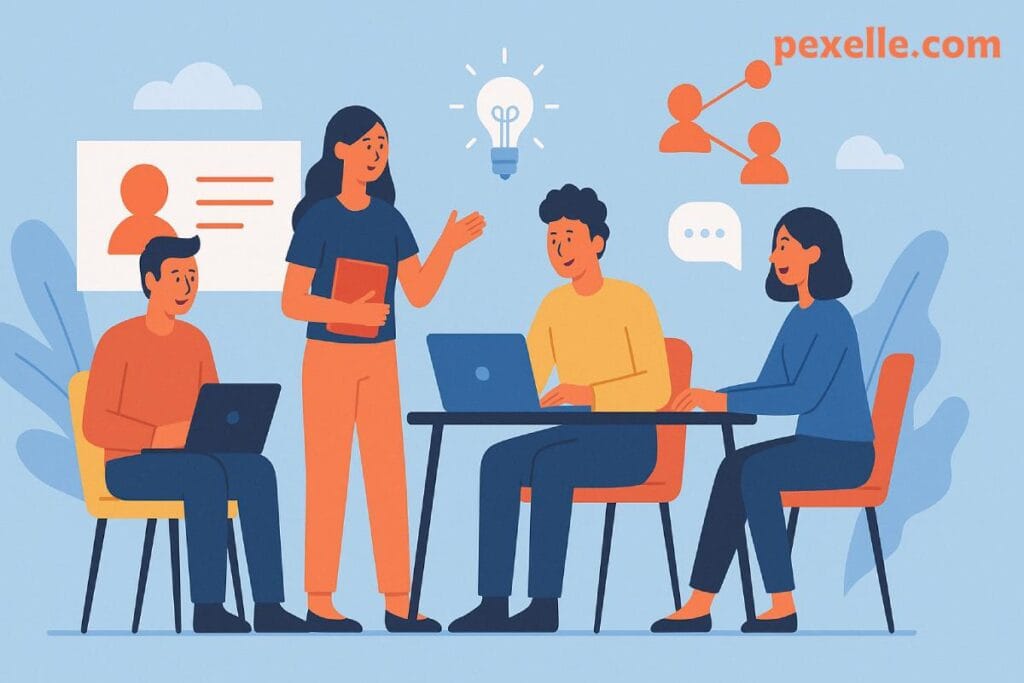Enhancing Personal Skills Through Social Learning

In today’s interconnected world, the path to personal development is no longer a solitary journey. Traditional learning models that emphasized individual study are gradually giving way to more collaborative, dynamic approaches. At the heart of this shift is social learning—the process of acquiring knowledge and skills through interaction, observation, and shared experience with others. This method has proven to be not only effective but also deeply human, aligning with our innate social nature.
What Is Social Learning?
Social learning is based on the theory that people learn more effectively in group environments where interaction, feedback, and shared experiences play a central role. Albert Bandura’s Social Learning Theory, for example, emphasizes learning through observation, imitation, and modeling. This can occur in structured settings such as classrooms, workshops, or group coaching sessions, but it also flourishes informally—within communities, peer groups, and even online platforms.
Unlike passive forms of learning, social learning invites engagement. Learners ask questions, challenge ideas, and co-construct knowledge. This leads to deeper understanding and improved retention. Furthermore, exposure to diverse perspectives can stimulate critical thinking, empathy, and innovation—skills that are highly valuable in both personal and professional contexts.
The Power of Learning in Community
Being part of a learning community accelerates personal growth by offering continuous feedback, encouragement, and accountability. Whether it’s a book club, a mastermind group, a coding bootcamp, or a creative writing circle, the act of participating in a collective learning process fosters discipline and motivation. Witnessing the progress of peers can serve as both inspiration and a benchmark, pushing individuals beyond their comfort zones.
Additionally, communities provide a safe space for vulnerability. In environments that encourage open dialogue and mutual respect, learners feel more confident to express doubts and share failures. This nurtures emotional intelligence and resilience—key aspects of personal development. Learning becomes not just about acquiring new skills, but about transforming attitudes and mindsets.
Digital Platforms and the New Era of Social Learning
The rise of digital platforms has exponentially expanded the scope of social learning. Online forums, collaborative workspaces, MOOCs (Massive Open Online Courses), and social media groups now allow people to learn from and with others across the globe. Platforms like Coursera, edX, Reddit, and Discord host vibrant communities that facilitate peer-to-peer knowledge exchange.
More immersive experiences, such as virtual study groups or co-learning on platforms like Notion and Slack, blend social dynamics with productivity tools. These environments support asynchronous learning, where individuals can contribute at their own pace while still benefiting from the collective intelligence of the group. Digital social learning breaks barriers of time, geography, and often cost—democratizing access to skill development opportunities.
Key Personal Skills Cultivated Through Social Learning
Engaging in social learning enhances a variety of essential personal skills, including:
- Communication: Regular interaction sharpens both verbal and written communication skills.
- Collaboration: Group learning develops the ability to work effectively with others toward shared goals.
- Critical Thinking: Exposure to differing viewpoints challenges assumptions and deepens analysis.
- Adaptability: Dynamic group settings train individuals to adjust to new ideas and feedback.
- Leadership: Roles naturally emerge in group learning environments, fostering initiative and responsibility.
These soft skills are often as crucial as technical proficiency, especially in the modern workplace where emotional intelligence and teamwork drive success.
Fostering Lifelong Learning Habits
Social learning instills a habit of lifelong curiosity. When learning becomes a shared endeavor rather than a chore, it turns into a lifestyle. People continue to seek out mentors, join interest-based communities, and participate in ongoing education, not out of obligation, but because they experience growth as meaningful and fulfilling.
Moreover, social learners often evolve into contributors—sharing what they know, mentoring others, and giving back to the communities that shaped them. This cyclical nature strengthens networks and builds social capital, reinforcing the idea that personal growth and collective progress are deeply interconnected.
Conclusion
Enhancing personal skills through social learning is not just a trend—it’s a fundamental shift in how we grow as individuals and as a society. By embracing learning communities, both online and offline, we cultivate not only knowledge but also the human qualities that make us effective, empathetic, and resilient. As we look to the future, fostering environments that support social learning will be key to unlocking human potential at every stage of life.
Source : Medium.com




